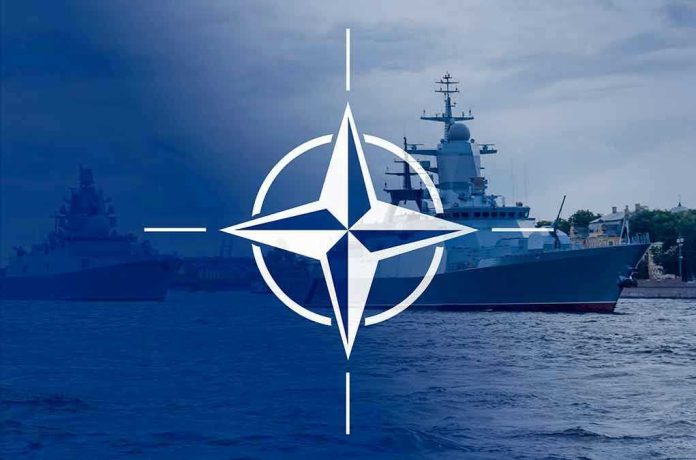
When a country revives mandatory military service after nearly two decades, what hidden fears and shifting alliances are driving such a dramatic change?
Story Snapshot
- Croatia reintroduces military conscription to counter rising security threats linked to Russian aggression.
- Young men will face two months of compulsory training starting in 2026, with women exempt but eligible for civilian service.
- Regional instability and the ongoing war in Ukraine push Croatia and other European countries to bolster defense readiness.
- Debate intensifies over gender equality, national security, and the real-world impact of conscription.
Croatia’s Security Calculus: Why Conscription Returns
Croatia’s parliament made headlines on October 24, 2025, by voting to reinstate mandatory military service, a move not seen since 2008. The underlying reason is clear: escalating fears triggered by Russia’s invasion of Ukraine and intensifying arms races in the Balkans have rendered old defense norms obsolete. National security, once a distant worry, has become immediate and personal for Croatian lawmakers who see conscription as a bulwark against regional threats. The timing coincides with a growing chorus of NATO officials warning that Europe’s eastern frontier is no longer a buffer but a potential flashpoint for broader conflict.
Defense Minister Ivan Anusic has been vocal in advocating for swift, decisive action. Parliamentary consensus was not universal, but the majority agreed that voluntary enlistment is insufficient for the challenges ahead. The new policy mandates two months of basic training for young men, beginning in 2026, while offering civilian service for conscientious objectors and exempting women from the draft. The Ministry of Defense is racing to finalize training frameworks, aiming to prepare the first conscripts for medical exams by year’s end. Critics argue that this approach may be more symbolic than strategic, but supporters insist that every measure counts when national security hangs in the balance.
Regional Tensions and European Precedent
Croatia’s decision cannot be viewed in isolation. The Balkans have long been a cauldron of unresolved disputes and shifting alliances, and the ripple effects of Russia’s war in Ukraine have reignited old anxieties. Croatia, a NATO member since 2009, joins a cohort of European nations reassessing the value of conscription. Lithuania, Sweden, and France have all reinstated or revised their draft policies in recent years, signaling a continent-wide pivot toward greater military readiness. The Croatian government’s move reflects both a local response and a broader European trend, underscoring the belief that traditional defense structures must adapt to a new era of uncertainty.
Analysts suggest that Croatia’s return to conscription is as much about signaling resolve to allies and adversaries as it is about practical military preparedness. The arms buildup in the Balkans, coupled with increased NATO deployments, has turned the region into a strategic chessboard. Croatian lawmakers hope that by reviving conscription, they can deter aggression and demonstrate national unity. The policy is not without detractors, with debates swirling around its effectiveness and fairness, particularly the issue of gender exemption and the career impact on young recruits.
Public Debate: Discipline, Equity, and National Identity
The Croatian public remains divided. Some see conscription as a necessary rite of passage, instilling discipline and a sense of duty in young people. Proponents argue that a brief period of military training can foster resilience and prepare citizens for emergencies. Others criticize the gender exemption, calling it outdated and unfair in an era of increasing gender equality. Civilian service options for conscientious objectors offer some flexibility, but the core debate centers on whether compulsory service truly enhances national security or merely disrupts personal freedoms and career trajectories.
EU nation introduces military service amid fears over Russian aggression
Croatia's parliament has voted to reintroduce compulsory military service, a decision made on Friday by the EU and NATO member state.
This move reflects heightened European tensions following Russia's… pic.twitter.com/lm4iiqSlMt
— Mike Alderson FRSA (@OpenEyeComms) October 26, 2025
Defense experts contend that conscription, even if limited in duration, can provide a rapid boost to manpower and readiness. Sociologists weigh in with concerns about the social impact, questioning whether the policy reinforces unity or deepens divides. Strategic analysts note that Croatia’s move aligns with conservative values of duty, preparedness, and collective defense—principles that have regained prominence in Europe’s shifting political landscape. As the first cohorts prepare for training, the national conversation will likely intensify, balancing the imperatives of security with the demands of individual liberty and social equity.
Broader Implications: Europe’s Changing Defense Paradigm
Croatia’s return to mandatory military service reverberates far beyond its borders. The defense industry may benefit from increased investment, while civilian service sectors could expand to accommodate new recruits. The policy’s economic impact remains uncertain, with potential costs weighed against perceived gains in security and cohesion. Political leaders emphasize that the decision signals Croatia’s commitment to NATO and to regional stability, a message aimed squarely at both European allies and Russian adversaries.
The long-term effects of conscription will depend on how the policy evolves and how society responds. Will it forge a more resilient nation, or will it fuel ongoing debates about fairness and effectiveness? As Europe grapples with new threats and old grievances, Croatia’s experiment with conscription may serve as a bellwether for the continent’s defense future—a story still unfolding with every new development.
Sources:
Croatia Reinstates Military Conscription Amid Security Fears
Croatia reintroduces military service as fears of war spilling over from Ukraine rise
Conscription Croatia Ukraine Russia War
European Parliament Briefing on Military Service







